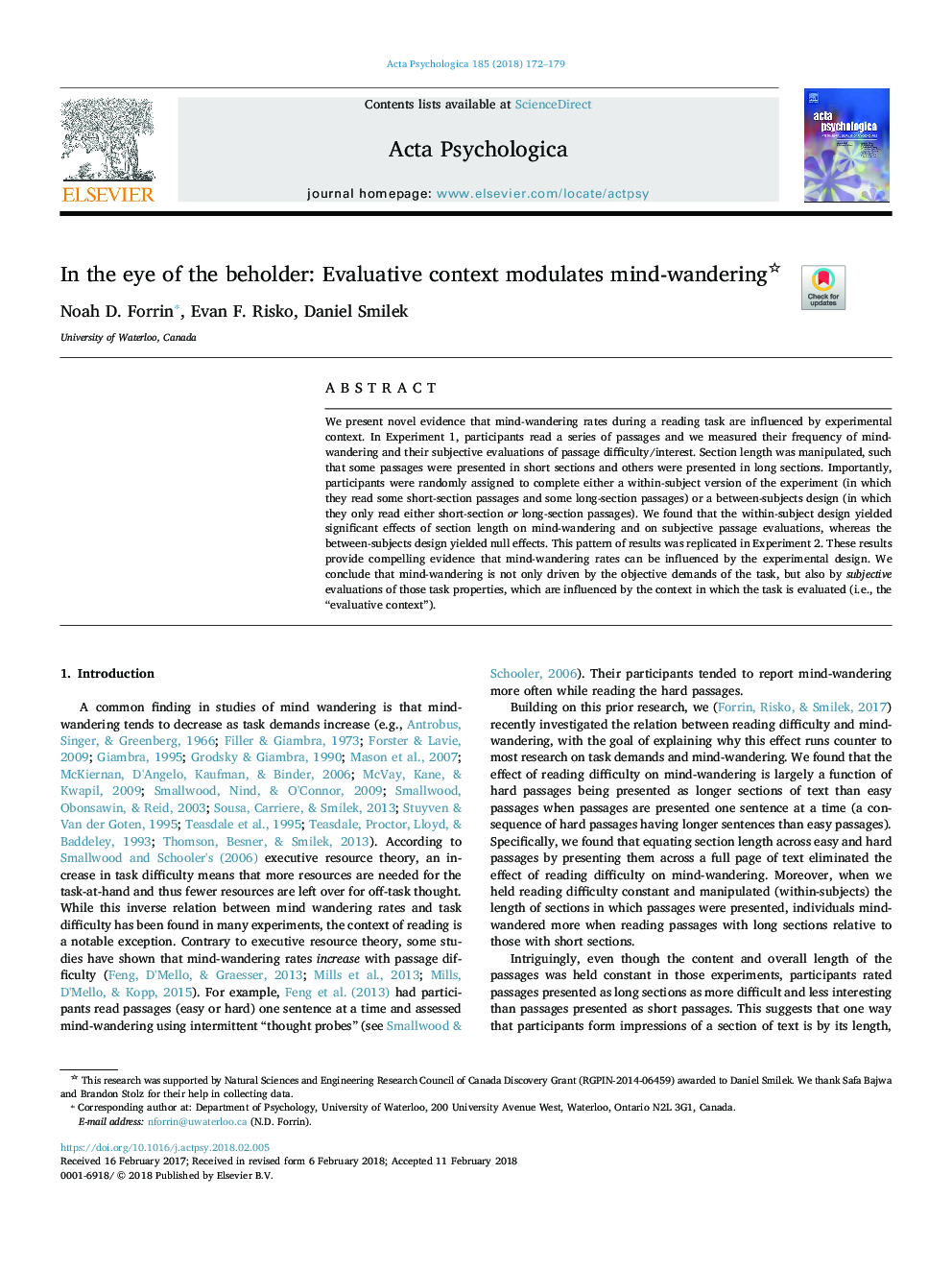| Article ID | Journal | Published Year | Pages | File Type |
|---|---|---|---|---|
| 7276776 | Acta Psychologica | 2018 | 8 Pages |
Abstract
We present novel evidence that mind-wandering rates during a reading task are influenced by experimental context. In Experiment 1, participants read a series of passages and we measured their frequency of mind-wandering and their subjective evaluations of passage difficulty/interest. Section length was manipulated, such that some passages were presented in short sections and others were presented in long sections. Importantly, participants were randomly assigned to complete either a within-subject version of the experiment (in which they read some short-section passages and some long-section passages) or a between-subjects design (in which they only read either short-section or long-section passages). We found that the within-subject design yielded significant effects of section length on mind-wandering and on subjective passage evaluations, whereas the between-subjects design yielded null effects. This pattern of results was replicated in Experiment 2. These results provide compelling evidence that mind-wandering rates can be influenced by the experimental design. We conclude that mind-wandering is not only driven by the objective demands of the task, but also by subjective evaluations of those task properties, which are influenced by the context in which the task is evaluated (i.e., the “evaluative context”).
Related Topics
Life Sciences
Neuroscience
Cognitive Neuroscience
Authors
Noah D. Forrin, Evan F. Risko, Daniel Smilek,
